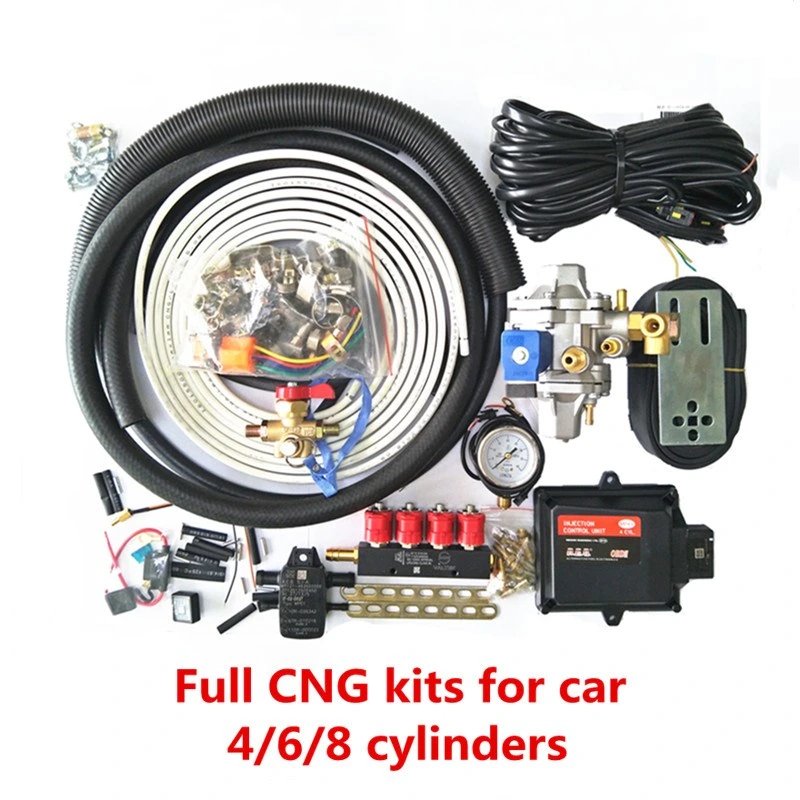
Interested in reducing your carbon footprint and cutting down on fuel costs? Look no further than CNG conversion. Converting your vehicle to run on compressed natural gas (CNG) offers a sustainable solution that benefits both the environment and your wallet. Plus, with an expanding network of CNG refueling stations, making the switch has never been more convenient. Discover the advantages, process, and considerations of CNG conversion in this comprehensive guide.
CNG Conversion: A Comprehensive Guide to Switching to Compressed Natural Gas
Welcome to our detailed guide on CNG conversion, where we will explore the ins and outs of switching your vehicle to Compressed Natural Gas (CNG). If you’re curious about the benefits, process, costs, and considerations of converting your car to run on CNG, you’re in the right place! Let’s dive in and discover everything you need to know about CNG conversion.
What is CNG?
Before we delve into the conversion process, let’s understand what CNG is. Compressed Natural Gas (CNG) is a clean and efficient alternative fuel that can be used to power vehicles. CNG is made by compressing natural gas to less than 1% of its volume at standard atmospheric pressure, making it easier to store and transport.
Why Consider CNG Conversion?
There are several reasons why you might want to convert your vehicle to run on CNG. First and foremost, CNG is a cleaner-burning fuel compared to gasoline or diesel, which means it produces fewer harmful emissions that contribute to air pollution and climate change. Additionally, CNG is typically more affordable than traditional fuels, offering potential cost savings in the long run.
The CNG Conversion Process
Converting your vehicle to run on CNG involves several key steps. Here’s an overview of the general conversion process:
Step 1: Vehicle Assessment
The first step is to assess whether your vehicle is suitable for CNG conversion. Not all vehicles are compatible with CNG, so it’s essential to consult with a qualified technician to determine if your car can be converted.
Step 2: CNG Kit Installation
Once your vehicle has been deemed compatible, the next step is to install a CNG conversion kit. This kit typically includes a CNG tank, fuel lines, regulator, and other necessary components to enable your vehicle to run on CNG.
Step 3: System Testing and Calibration
After the installation is complete, the CNG system needs to be thoroughly tested and calibrated to ensure that it functions correctly and safely. This step is crucial to prevent any potential issues or malfunctions down the road.
Benefits of CNG Conversion
There are numerous benefits to converting your vehicle to run on CNG. Some of the key advantages include:
Environmental Impact
CNG is a cleaner-burning fuel compared to gasoline or diesel, resulting in lower emissions of harmful pollutants such as carbon monoxide and nitrogen oxides. By switching to CNG, you can reduce your carbon footprint and contribute to a cleaner environment.
Cost Savings
On average, CNG is more affordable than gasoline or diesel, offering potential cost savings over the long term. Additionally, some governments and organizations may offer incentives or tax breaks for using alternative fuels like CNG, further reducing your overall expenses.
Considerations Before Converting to CNG
While CNG conversion offers numerous benefits, there are some important considerations to keep in mind before making the switch:
Availability of CNG Stations
Before converting to CNG, it’s essential to ensure that there are CNG refueling stations conveniently located along your regular routes. Without easy access to CNG stations, refueling your vehicle could become a challenge.
Upfront Costs
The initial cost of converting your vehicle to run on CNG can vary depending on the make and model of your car, as well as the specific conversion kit you choose. It’s essential to weigh the upfront costs against the long-term savings to determine if CNG conversion is a feasible option for you.
In conclusion, CNG conversion is a viable and environmentally friendly alternative for powering your vehicle. By switching to CNG, you can reduce emissions, lower your fuel costs, and contribute to a cleaner planet. However, it’s crucial to consider the upfront costs, availability of refueling stations, and compatibility of your vehicle before making the decision to convert. If you’re interested in embracing a greener and more cost-effective fuel option, CNG conversion could be the right choice for you!
We hope this guide has provided you with valuable insights into the world of CNG conversion and helps you make an informed decision about transitioning to this clean and efficient fuel. Drive clean, drive green!
CNG Kit, Natural Gas Conversion, Sequential Injection For $850
Frequently Asked Questions
What is CNG conversion?
CNG conversion involves modifying a gasoline engine to run on Compressed Natural Gas (CNG) instead of traditional gasoline. This process requires installing a CNG conversion kit, which includes components like a CNG tank, fuel lines, and a regulator.
How does CNG conversion benefit vehicles?
CNG conversion offers several benefits to vehicles, including lower fuel costs, reduced emissions, and increased engine longevity. CNG is a cleaner-burning fuel compared to gasoline, resulting in lower carbon emissions and contributing to environmental sustainability.
Can any vehicle be converted to run on CNG?
Not all vehicles are suitable for CNG conversion. Generally, newer vehicles with fuel-injected engines are better candidates for conversion than older carbureted engines. It’s essential to consult with a professional to determine if your vehicle is compatible with CNG conversion.
What are the potential challenges of CNG conversion?
One common challenge of CNG conversion is the initial cost of installing the conversion kit, which can be relatively high. Additionally, finding CNG refueling stations may be more challenging compared to gasoline stations, limiting the availability of CNG as a fuel option.
Is CNG conversion a DIY project?
CNG conversion is not recommended as a DIY project due to the complexity and safety considerations involved. It requires specialized knowledge and expertise to ensure that the conversion is done correctly and safely. It’s best to seek professional assistance from certified technicians for CNG conversions.
Final Thoughts
In conclusion, switching to CNG conversion offers numerous benefits such as cost savings, reduced emissions, and environmental friendliness. It is a practical solution for individuals and businesses looking to reduce their carbon footprint and operating costs. By embracing CNG conversion, we can contribute to a cleaner and more sustainable future for generations to come.







